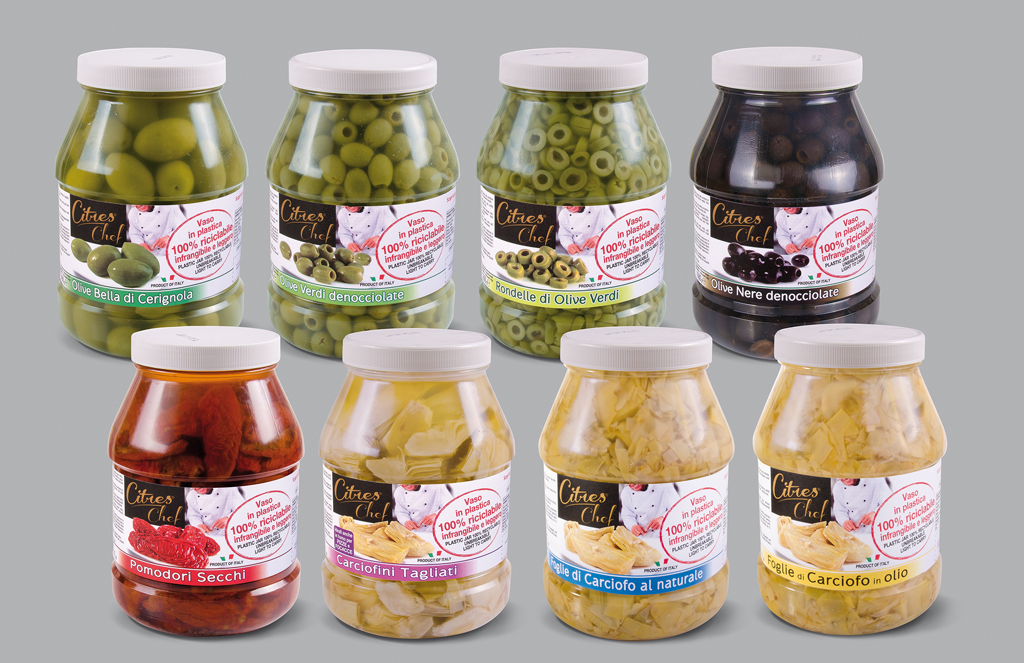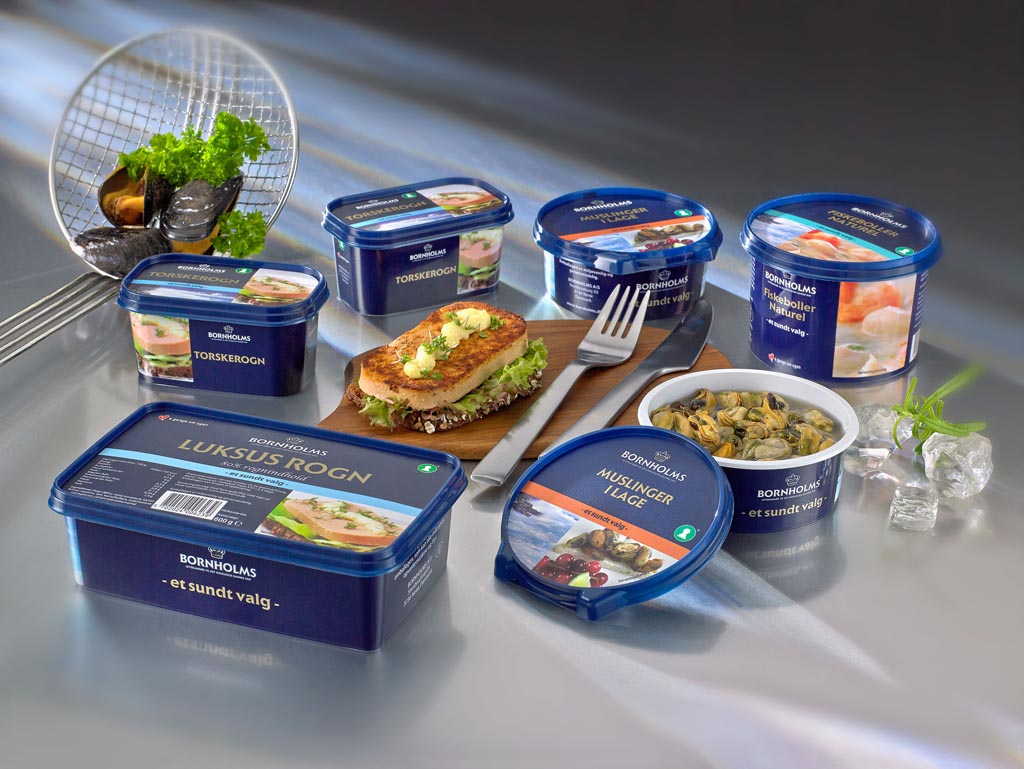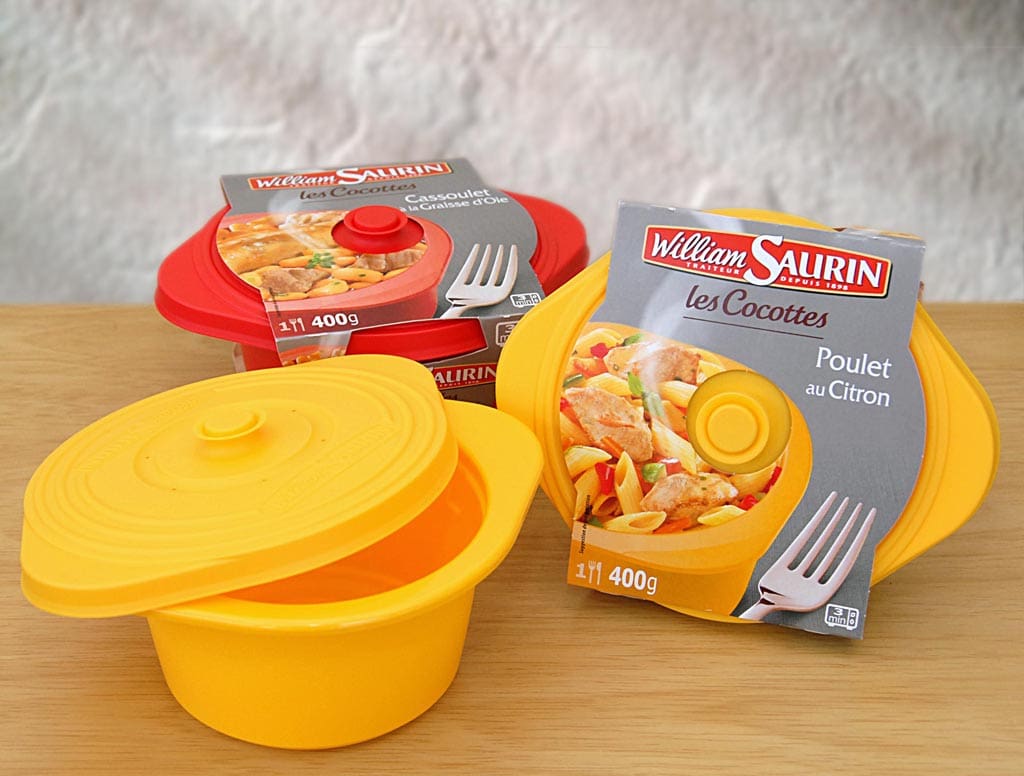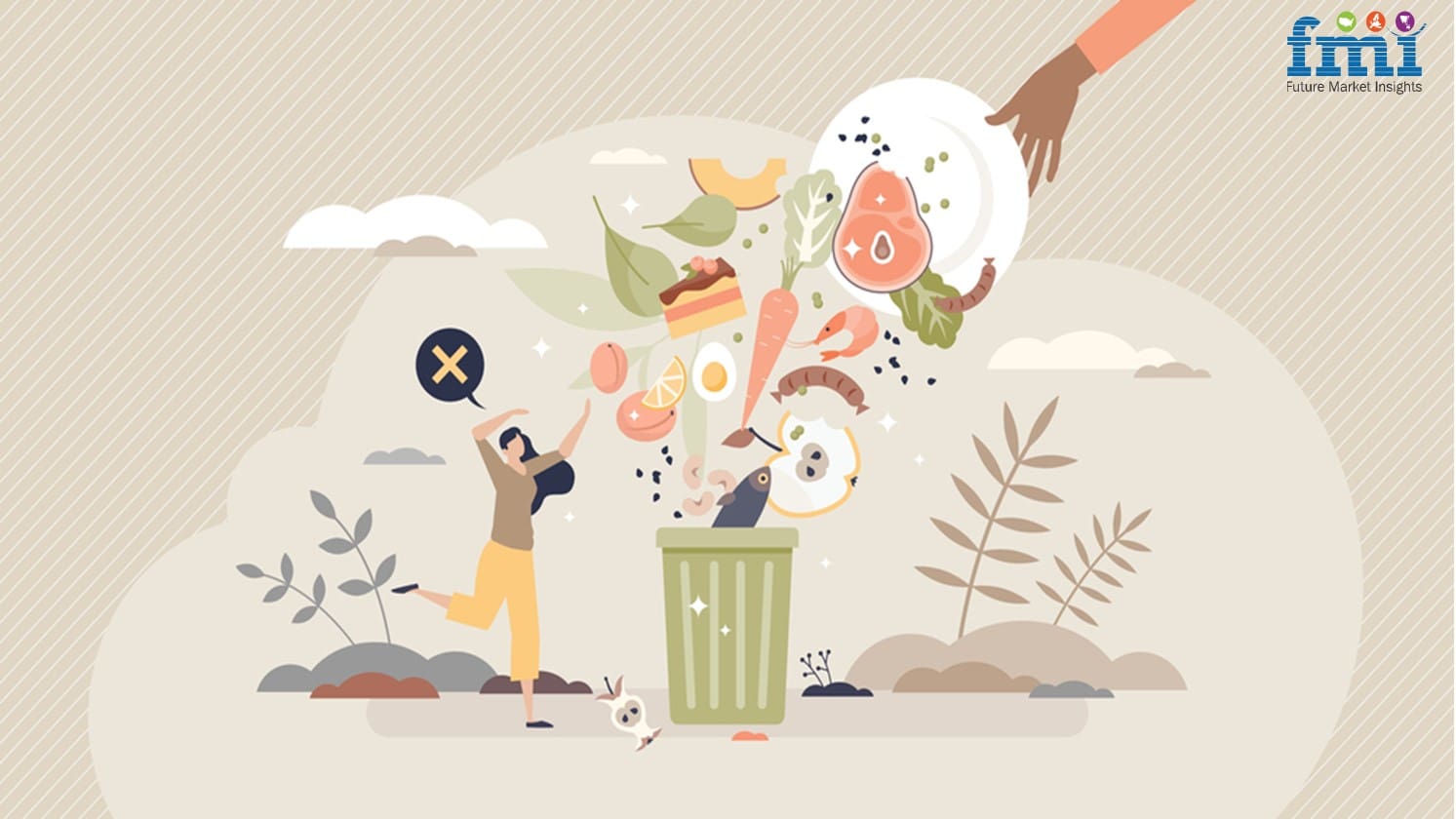INTERPACK 2014
[twitter-follow screen_name=’itfoodonline’]
Tweet
Tweet #interpack-2014
For info please contact +39 0362 244182, or mail to info@itfoodonline.com
RPC DELIVERS A WEALTH OF CONVENIENCE SOLUTIONS
The term ‘convenience’ can mean many things in food packaging – functionality and easy handling, microwavability, easy opening and closing, and ‘eating on the go’ are all obvious examples. But convenience can also refer to extending the shelf life of products or ensuring their safe handling in a busy kitchen environment.
 For these requirements and more, plastic has few equals. Its many convenience benefits have been invaluable both in helping to develop market sectors and to launch new products. The variety of pots and tubs created for dips, salads and all types of snacking on the move, and the introduction of high barrier squeezy sauce bottles are just two examples.
For these requirements and more, plastic has few equals. Its many convenience benefits have been invaluable both in helping to develop market sectors and to launch new products. The variety of pots and tubs created for dips, salads and all types of snacking on the move, and the introduction of high barrier squeezy sauce bottles are just two examples.
Barrier technology in particular has opened up a whole new market for extended ambient shelf life convenience products such as ready meals, sauces, soups, fruit desserts, nuts, vegetable spreads, dairy products and pickles. What’s more, plastic technology has the flexibility to offer different processes to meet the needs of different product types.
Europe’s leading rigid plastics packaging supplier RPC Group uses all three of the major plastic manufacturing techniques – thermoforming, blow moulding and injection moulding – to provide tailored packaging solutions for individual product characteristics or branding requirements, for example the need for reclosability, intricate eye-catching designs, or a large family-size pack.
 Two solutions from RPC for Heinz’s famous Baked Beans demonstrate the flexibility of barrier plastics to meet different market requirements. A 1kg blow moulded jar is being used for the Fridge Pack, which combines extended shelf life with portion control – once opened the jar can be resealed and stored in the fridge for up to five days. Meanwhile, thermoforming produces the popular Snap Pots, which provide convenient microwavable individual portions.
Two solutions from RPC for Heinz’s famous Baked Beans demonstrate the flexibility of barrier plastics to meet different market requirements. A 1kg blow moulded jar is being used for the Fridge Pack, which combines extended shelf life with portion control – once opened the jar can be resealed and stored in the fridge for up to five days. Meanwhile, thermoforming produces the popular Snap Pots, which provide convenient microwavable individual portions.
Plastics’ design flexibility is another key factor in the material’s success. RPC Barrier Containers recently developed a long shelf life ambient packaging solution for a range of ready meals produced by French foodservice specialist Soulié Restauration, part of the William Saurin Group.
 The custom-designed tub and lid have been created to resemble a traditional casserole pot and are coloured red or yellow depending on the product. The eye-catching colours and innovative design help to create on-shelf impact and brand differentiation in a highly competitive market sector.
The custom-designed tub and lid have been created to resemble a traditional casserole pot and are coloured red or yellow depending on the product. The eye-catching colours and innovative design help to create on-shelf impact and brand differentiation in a highly competitive market sector.
…/
The 600ml oval tubs are thermoformed in multilayer polypropylene by RPC Bebo Plastik, with the matching lids injection moulded in PP by RPC Bramlage. The barrier pack provides a shelf life of up to 18 months for the ready-to-heat typical French recipes.
The ready meals are retorted in the tub after filling. The technical skills and close co-operation between the two RPC sites ensure that the lid remains closely fitting after the retort process.
Such design flexibility is not restricted to bespoke pack designs. RPC Superfos’s SuperLock® containers combine an oxygen barrier on all surfaces with a membrane seal to ensure an almost non-existent oxygen transmission rate. This provides an ambient shelf life of up to 24 months for a wide range of products.
For manufacturers, the packs are suitable for both hot and cold filling, can be retorted for product pasteurisation or sterilisation, are stackable for efficient storage and offer low noise on the filling line. They are also lightweight, low carbon and fully recyclable, delivering important sustainability advantages.
Consumer benefits include easy and safe handling, reclosability, and microwave, dishwasher and freezer safe.
The innovative in-mould label which incorporates the barrier also offers high quality printing to create outstanding and eye-catching graphics that deliver effective brand identity and on-shelf appeal on crowded retail shelves. As well as a choice of sizes, bespoke designs can be created to meet specific customer requirements.
Another standard container solution from RPC Bebo Plastik is meeting the dual needs of the convenience of re-closing and the reassurance of tamper-evidence for a variety of spreadable products such as cheese, margarine and butter.
The new Bebo Swing incorporates a unique perforation process which ensures easy opening. The re-closable lid can be hinged or fully removed. The lid is welded to the tub through ultrasonic welding.
The patented design can be adapted for various shapes and is suitable for products both with and without lidding film. Bebo Swing can be manufactured in monolayer or multilayer PP where EVOH provides a barrier against oxygen ingress for extended ambient shelf life. A light barrier can also be incorporated for light-sensitive products.
A range of decoration options including printing, labelling and sleeving enables each pack to be tailored to the precise requirements of individual products and create effective brand image and on-shelf appeal.
…/
The result of all these convenience and design benefits is that plastic is replacing more traditional materials for many food packing applications. For example, Bornholms, a market leader in seafood in Scandinavia, is converting most of its packaging solutions from cans to plastic packs from RPC Superfos, citing the benefits of improved logistics, user-friendliness and a shelf life of two years under ambient temperatures.
RPC Superfos has developed a series of four types of packaging with an entirely new oxygen barrier solution, created especially for Bornholms. Under ambient temperatures, the shelf life is two years.
In the long run, Bornholms and RPC Superfos expect shelf life to be extended up to three years. This time frame is also attractive to Bornholms as the company’s exports to overseas market mean rather time consuming transport by ship and sometimes lengthy clearance through customs.
The change of packaging has delivered clear benefits for both the seafood company and the end-user.
Bornholms says the conversion has enabled it to increase the filling speed, reduce the cost of the packaging material and optimise logistics. Another very positive effect has been the reduced carbon footprint.
According to the company’s estimates, it will save more than 200,000 km by truck every year, which in part is due to the location of the RPC Superfos Distribution Centre, but also closely linked to the shape of the packaging, which can put a significant amount of extra units on each truck.
The improved stacking facility also means that the empty pots only demand up to 30 per cent of the warehouse space that was previously required.
Material conversion has also been seen frequently in the busy kitchen environment where multilayer plastic has long been considered a safe and more modern packaging solution. In collaboration with RPC, Citres Spa, the Italian food specialist in pickles, pesti and sauces, is pioneering the supply of its products in new polypropylene jars.
With a major focus of its turnover in Northern Europe, Citres Spa has developed a plan to meet the needs of customers in markets which for some time have restricted and in certain cases banned the use of glass in foodservice kitchens, requiring instead the introduction of more ecological, safe and lightweight jars.
The company has therefore worked with RPC to develop a solution that meets its requirements for long shelf life (up to 36 months), lightness, resealability, recyclability and easy opening, while maintaining the freshness and authenticity of the products.
The RPC jars all feature a multilayer PP/EVOH/PP construction that can be pasteurised and sterilised to provide a long ambient shelf life.
Today in 2300g and 3700g sizes, Citres Spa is the only Italian company to offer products in packaging that delivers all these additional benefits thanks in particular to its specially-developed filling technology which ensures that the containers do not deform during the pasteurisation process.
Using RPC’s extensive range of jars, Citres Spa supplies products to both retail and fooservice sectors. RPC is supplying its 1000g (Classic Jar) for Pesto and Sauces, the 2400 g (Thermic Ultra) for Olives, Sliced Artichokes and Dried Tomatoes, and the 3800 g (Amgall) for a variety of sliced and diced vegetables. The jars are produced by RPC Corby and RPC Kutenholz, with caps from RPC Halstead.
Citres Spa says reaction to the new packaging has been extremely positive from both customers and consumers with listings now being achieved in some of Italy’s leading supermarkets.
Following the success of its multilayer bottles and jars for glass replacement, RPC Corby has now also launched modern plastic alternatives to the tin can and composite pack.
Both the Apollo and Artemis containers combine extended ambient shelf life, featuring a PP/EVOH/PP multilayer structure for the effective protection against oxygen ingress, with all the established lightweight, easy handling and safety benefits of plastics. They also offer the convenience of re-closing.
The 380ml Apollo is suitable for a variety of food processes including hot fill, retort and pasteurising, and offers an attractive, fluted design in the same diameter as a can, with full sleeving and labelling options to create effecting branding and on-shelf appeal. It is also stackable to maximise shelf space.
The neck of the Apollo container is specifically designed for the Aptar Bap® Trilogy® closure, which ensures excellent pack integrity and product freshness. The foil seal features a plastic ring pull for easy opening and there is an overcap for re-closing. The lightweight pack is highly resistant to breakage and denting and avoids any sharp edges to provide maximum safety and convenience in the home.
The Artemis jar meanwhile offers a practical and convenient solution for a variety of dried, powdered and granulated products such as nuts, instant coffee and infant milk formula.
The high barrier material structure protects products against moisture and oxygen (and has the option of a UV-light inhibitor), meaning there is no need for the product to be bagged inside the container.
The design incorporates a new non-round neck feature, making use of Aptar’s BAP® ‘Quantum’ closure. This type of neck-finish and closure combination gives an induction weld for confidence of product integrity, and therefore product and shelf life longevity. An integrated ring pull ensures easy opening for consumers and the flip-top lid provides the convenience of resealing between uses.
The jar is suitable for both hot and cold filling, and complies with current food contact legislation. Its standard design creates a distinctive appearance on shelf, while good contact clarity enables products to be visible. The design also provides a wide area for effective decoration by printing, labelling or sleeving, allowing brands to create a unique appearance, with plenty of room for eye-catching graphics as well as product information, instructions and marketing messages. Bespoke shapes can also be developed to meet specific customer and brand objectives.
The many convenience benefits of plastics also offer important environmental advantages. Lighter containers save on raw material usage and reduce the carbon footprint of transportation, while reclosable packs and extended shelf life do much to help reduce food wastage.
Such a variety of pack solutions for a wealth of different products underlines plastics’ strength and versatility.
Indeed, given its design flexibility, sustainability benefits and convenience, it is hard to imagine what the food market would be like today without plastic packaging.




